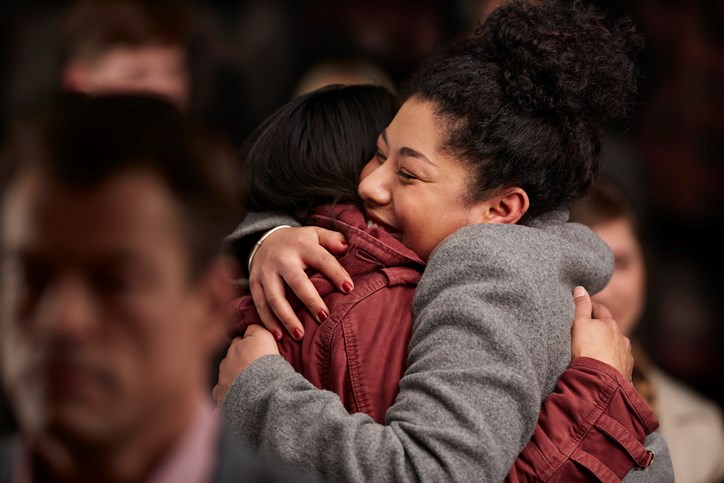"Are you ready for a hug?"
Those were the words of a dear friend as we were about to share an embrace for the first time in 16 months. It was a hug we'd been promising each other for a long time and it felt so great when it finally happened.
We've been hearing a lot of people speak excitedly about reunions with family and friends. Promises of lunch, barbecues and get-togethers have been in the making for a while now as people anticipated the ending of restrictions and the chance to get together once again. But the question remains: will we follow through?
More than six months before the pandemic began, a sad trend that was being analyzed was the increasing number of instances where people didn't follow through on plans with family and friends. The average respondent was failing to show up to 46 per cent of events they said they would attend.
They had all kinds of excuses to defend the no-shows. Too tired. Change of heart. Something came up. Got a better offer.
Brides and grooms were especially frustrated, certainly by the lack of RSVPs, but even more so by the number who declared their intention to come and then didn't show. The same types of stories were shared by people setting up recreational sports leagues, those in charge of community events, and those hosting parties.
People say they will be there so plans are made accordingly, but then many fail to actually go. One frustrated woman told a reporter she was done with a group of friends.
"The final straw was a backyard pool party we planned. We had 18 people coming so I prepared for that; you know food, drinks, beach chairs. But we had eight people show up. Eight. So much food and so many people who just didn't show. They didn't call or cancel. They just didn't show."
Analysts say it's a trend that has been on the rise for the better part of two decades and that we would be wise to look deeper into the threat it is posing to our relationships.
At a dinner party in Puerto Pinasco, Paraguay, in 1958, Dr. Ramon Artemio Bracho proposed the idea of starting a world friendship day. The World Friendship Crusade was born that night and became an organization actively promoting the importance of friendship worldwide. It took decades of lobbying, but in 2011 the United Nations officially recognized their work and declared July 30 each year to be International Friendship Day.
In striving to confront the challenges faced around the world there is strength in the shared spirit of humanity … the simplest of which is friendship. Several countries mark July 30 as a day to promote friendship between individuals, countries and cultures.
When asked what factors in life bring the most happiness or contentment, people across all age groups put good friends in the top five, yet we'd be hard-pressed to prove that if you look at our behaviour. While we've increased the amount of time spent at work and time on screens by significant amounts over the last 20 years, we have decreased time with friends by 23 per cent.
In combating this trend, the Mayo Clinic has come up with a list of suggestions to help us develop and deepen friendships. Included in their advice is a simple instruction: extend and accept invitations.
We've talked a good game about how much we've missed our friends and what we wanted to resume when we could get back to being together again. After having to maintain friendships through virtual contact and social distancing, we can now work at deepening those relationships by putting time into them.
So we need to be sure we make the most of it. Any number of factors can interrupt our ability to get together, both the expected and the unexpected. That's why there's no time like right now to ensure your friends know how much they matter and that you want to build on your shared experiences with one another. It's not about what you are doing, but that you're doing it together.
Those hugs are feeling mighty good, and the heart-to-heart, face-to-face talks with friends are soothing to the soul. So in honor of International Friendship Day, let's be sure to reach out and not just say we'll get together, but follow through and make it happen.
The Mayo Clinic seems to think the answer is pretty simple: extend and accept invitations. That's a prescription we can all write for ourselves. That's my outlook.

